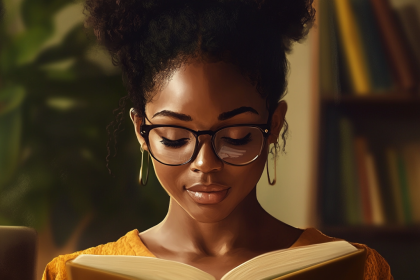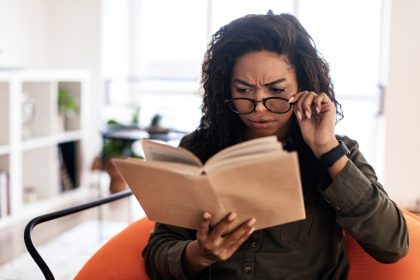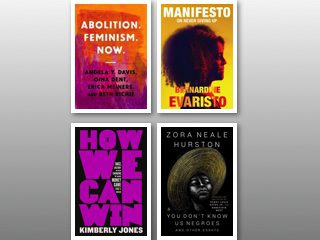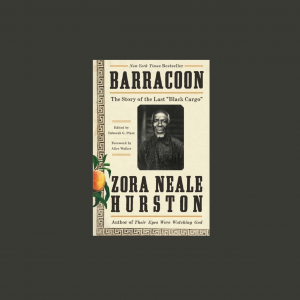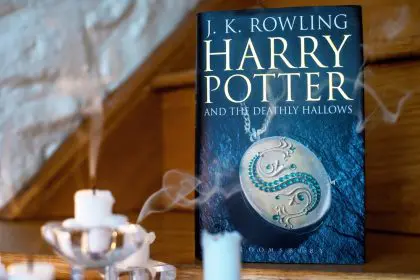
Veronica R. Wells penned Bettah Days to tell her “grandmother’s story.” In her new book, the Indianapolis-born and raised writer tells the story of Constantine who “knew she didn’t want a marriage like the dried up one her parents had. Instead, she wanted it to mimic the sweet, American love songs her father played from his phonograph. But after a devastating heartbreak, the introduction of a charismatic stranger, and an unplanned pregnancy, Constantine finds herself in a relationship that is far more disappointing and dire than anything her parents endured. In the midst of motherhood, dissatisfaction, and a challenging husband, Constantine must find the strength to choose peace over peril and forgiveness over fury.”
Read what she has to say about writing, reading, and tips for aspiring writers.
![Pageflex Persona [document: PRS0000040_00014]](https://rollingout.com/wp-content/uploads/2016/10/Bettah-Days-Cover_Social-Media-631x960.jpg)
What inspired you to write your first book?
I’ve had this story, my grandmother’s story, in my heart and head since I was a young child. I thought her life, with the disappointments, dysfunction, abuse, and road to forgiveness, was very unique to her and our family. But as I’m getting older and gaining a better understanding of what it means to be a woman, I’m realizing that there are so many other women who’ve had similar stories and could benefit from reading and hopefully relating to my grandmother’s experiences.
Do you have a specific writing style?
Not one that I can exactly pinpoint. I just try my best to write as clearly and succinctly as possible. I want my readers to be able to see and feel the scenes and characters and their emotions. But I don’t want too much description to get in the way of the story’s flow. Bettah Days was long enough already and I didn’t want it to be weighed down by unnecessary words. Brevity, I think, helps readers to stay engaged.
What books have most impacted your life (or life as an author)?
Their Eyes Were Watching God- Zora Neale Hurston
Brown Girl, Brownstones, Paule Marshall
Love- Toni Morrison (Most everything by Toni Morrison. No one captures human emotion like her.)
Breath, Eyes, Memory- Edwidge Danticat
How To Write A Damn Good Novel- James N. Frey
What books are you currently reading? Why this author?
I’m currently reading Desiree Cooper’s Know The Mother. Honestly, I’d never heard of her; but after some Instagram perusing, I stumbled across a picture of her book cover; which is amazing, and I had to know what it was all about. I have not been disappointed. It’s a collection of short stories. I have to put the book down after each one to reflect. It’s brilliant!
I’m also slowly reading The Immortal Life of Henrietta Lacks by Rebecca Skloot. I started it right before I published my own book, which wasn’t exactly smart. But I’m very impressed and inspired by the amount of time and effort she put into bringing this story to life.
What new writers have piqued your interest?
Yaa Gyasi, author of Homegoing. I think the concept for that story is incredible, something I’m sure many woke people of diaspora have considered.
If you had to do it all over again, would you change anything about your latest work?
No. There are things I’ll do differently next time, but that’s the point. It’s about learning and getting better each time. I didn’t hold myself up to a standard of perfection. I did my best and I can be proud of that. I don’t want to sound more well-adjusted than I really am. I’ve been very anxious about this whole process, the journey to publish this book myself has not been an easy one. But the impact it’s had on people and the lessons I’m learning are exactly what I need at this time in my life. And I’m afraid that if I were to change anything about this work, those lessons and blessings wouldn’t have manifested in the way they did.
Is there anything you find particularly challenging about writing or coming up with a concept for your book?
Thankfully, with this one the concept was already there. It was just a matter of filling in with transitions. What was difficult was finding the discipline and the focus to sit down and write everyday. I work a full time job, so I had to write this book after work and on the weekends. I’ve never, ever been more disciplined in my life! It was very challenging and required quite a bit of sacrifice. But it’s really paid off in ways that I couldn’t have imagined.
What was the hardest part of completing this project?
Really committing to it. By that I mean, I’ve wanted to write this story for years and I knew I was going to write it years ago. But things didn’t start moving and shaking until I got committed. And then I had to constantly find new ways to stay committed when I lost that initial drive and passion. When I didn’t know if this book was good enough or would ever see the light of day, I had to reassure myself with the fact that I had to at least try. And then, after trying, I had to believe. The book is out in the world and I’m still working on the believe part.
What advice would you give other writers?
Just start. Fake it ’til you make it. Write first, edit later! I would tell writers that the fact you feel the desire to tell a story is your permission to do so. I guarantee, even if no one reads your book — and someone will — that you just taking the time to sit down and write it will inspire someone. You following your dreams is not just for you, it’s to encourage other people to do the same.
Describe the process of getting published.
I self-published this book so I wasn’t on the same timeline as authors who go through a traditional publishing house. So that means I had more control, freedom and autonomy in how and when the book came out. But that also means the very necessary and expensive process of promoting this book fell on my shoulders.
What were the literary, psychological and/or logistical challenges in bringing your work to life?
Much of my book takes place not only in the past but also in a different country. So, I had to ask myself a lot of questions about whether certain ideas, values and even actions would have been acceptable in different time periods. Logistically, the formatting portion, making the Bettah Days look like an actual book was very tedious and time-consuming. Reading is a visual experience, just as much as it is emotional. If a page doesn’t look right, it can distract a reader from fully investing in the story. So it was worth it but very exhausting. The psychological challenges were probably the greatest and hardest to overcome. Silencing or quieting the voices of doubt and distraction long enough for you to write and try each day.
Everyone’s process for writing is different. Explain yours.
My process has just been to get it all out initially, for the rough draft and spend the rest of the time, from rough draft to publication, cleaning it up. I made a mistake the first time I tried to write this book because I was trying to write and edit simultaneously. But I realized, you get absolutely nowhere doing that. Get it all out first, no matter how messy it is. Take a break from it. And then come back and fix it.
What are five of your favorite books and why?
Their Eyes Were Watching God, Zora Neale Hurston – because of the way Hurston pairs the almost-mythical with the mundane. This was the first time I’d read a book where a Black woman evolved into her own hero, with and without the help of men.
Sula, Toni Morrison – because I’m still talking about that story, Sula’s betrayal and the power and necessity of friendships between Black women.
Beloved, Toni Morrison – because it’s so painful and so, so dark. But it also speaks to the indomitable spirit of Black folks, particularly in this country. And also because I get something big and something new every single time I read it.
Praisesong for the Widow, Paule Marshall – because it speaks to Black women learning to live as their authentic selves. I remember feeling so elated for the character after reading it. It made me question ways in which I was not being authentic in my own life.
Kindred, Octavia Butler – because so many of us imagine what our lives would have been like if we had to live as slaves. And Butler explores that in such a thrilling and haunting way.
Please provide three “good to know” fact about you. Be creative. Tell us about your first job or the inspiration behind your writing.
- I don’t memorize movies, but I can quote mostly all the lines in Bebe’s Kids.
- My book is written in Jamaican patois. But my own imitation of a Jamaican accent is trash. Struggles of a Jamerican.
- Beyoncé’s work ethic and Drake’s “10 Bands” inspired me to finish this book.
What is the mission you set out to accomplish with your voice in this book?
I want women, particularly Black women, to know that they are powerful even when they feel most weak and vulnerable. And I want men, particularly Black men, to know that their actions toward women matter and that we don’t have to fight each other for power.
Who are the authors you reread and why?
My to-be-read list is loooong. So I almost never re-read anything. Beloved has been chosen and then required reading from middle school to college. But most times I just recommend books to people and then ask to talk about the story with them.
A great book has what?
Characters who stick with you after you’ve finished reading.
You develop character and ideas by …
Asking myself questions about every last one of their actions. If they’re going to do something, I need to have a list of reasons why this particular character would do or say something.
Where would you travel if you could to write you next book?
Distraction is real. So it would have to be a place that’s very quiet, relaxing with not much to do there. Some place where you wouldn’t mind being inside all day. But also some place where when I’m done writing, I can get some good food or watch some good TV to reward myself.
What is the gift of reading?
Reading is a gift because it allows you to escape our own limited realities. It allows us to travel places we might not ever see in person. And it reminds us of our connectedness as human beings. With all the evil in the world, we desperately need that reminder.


